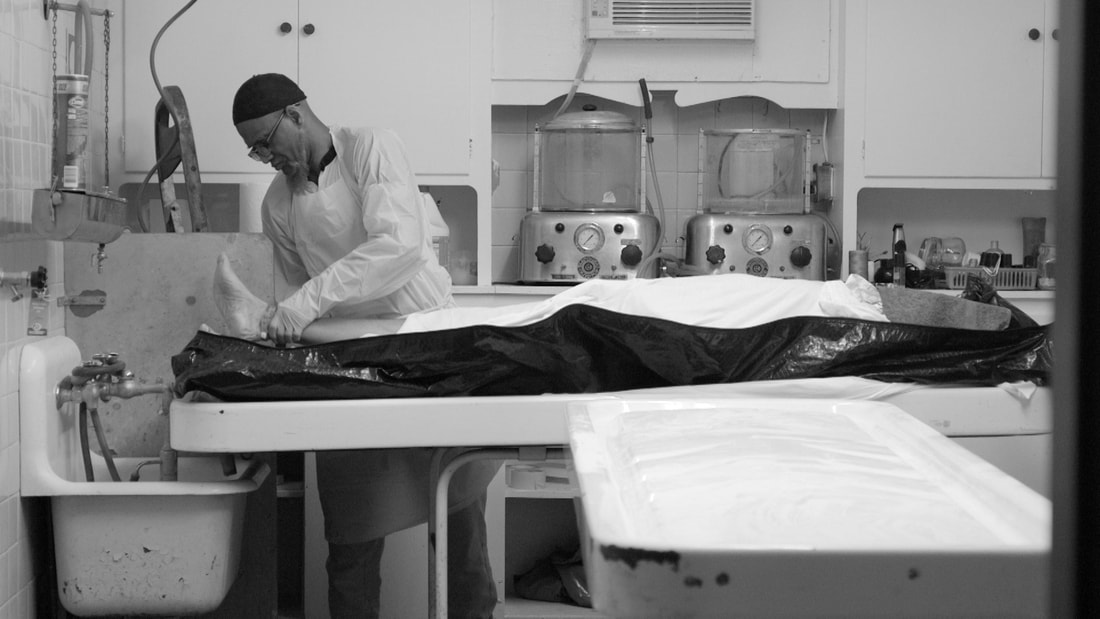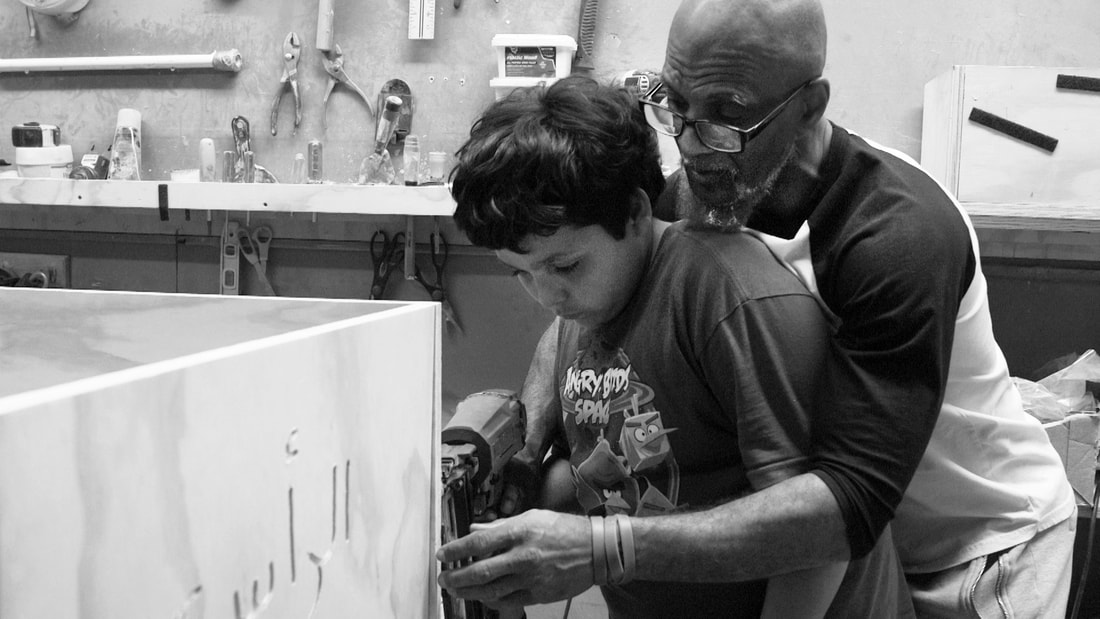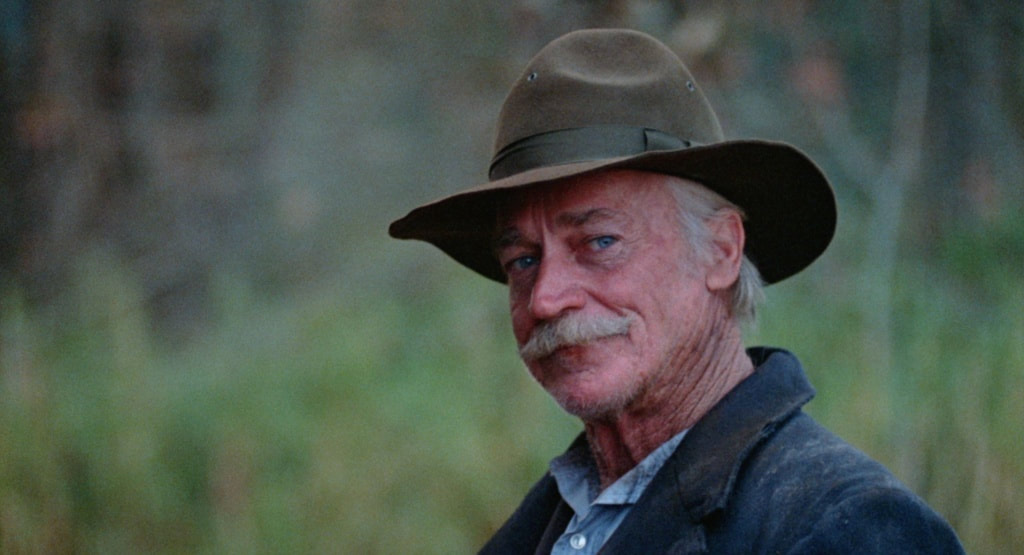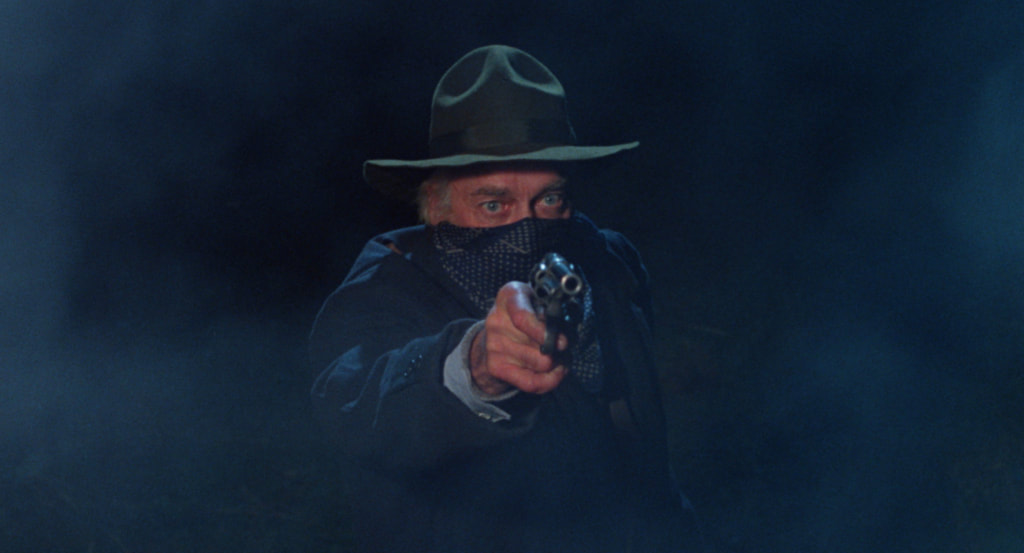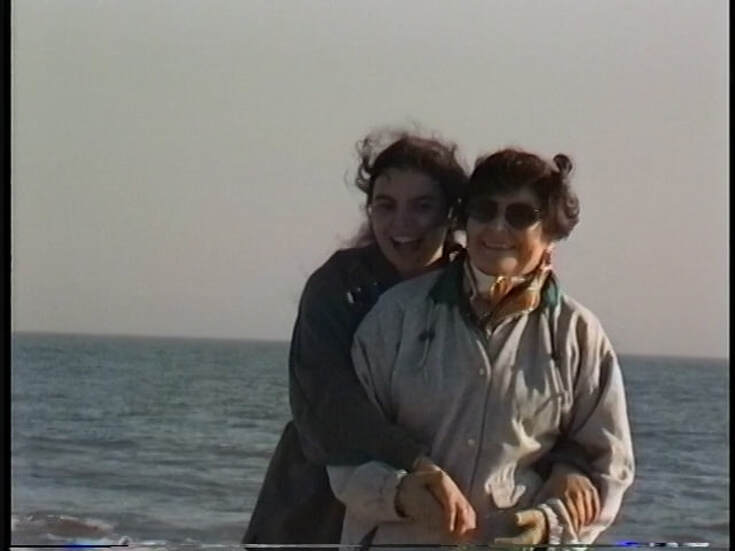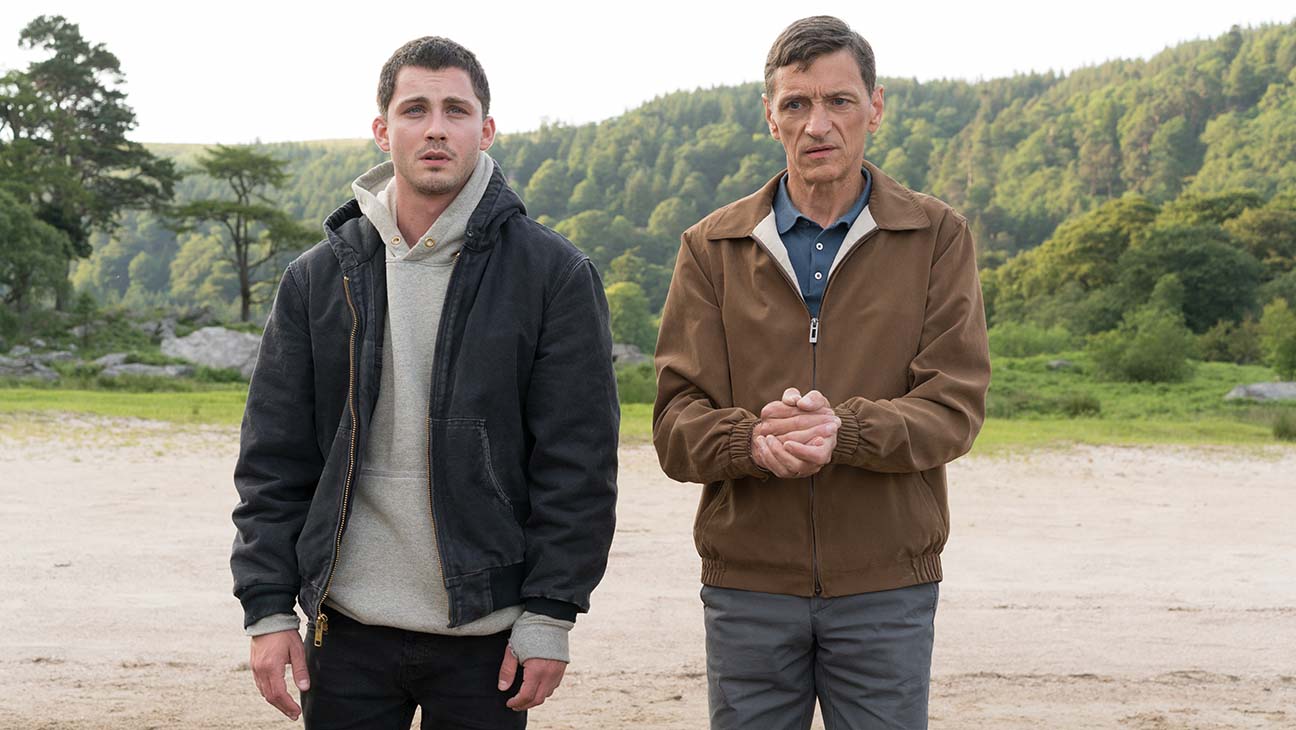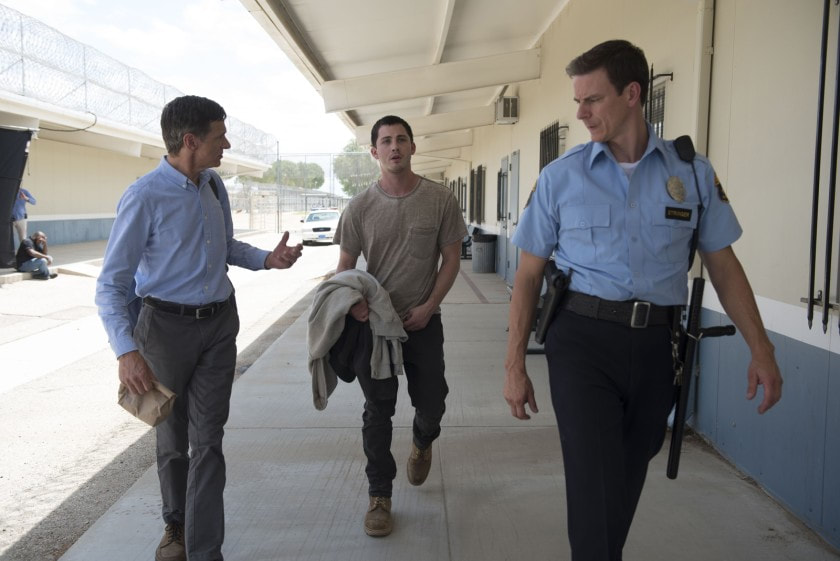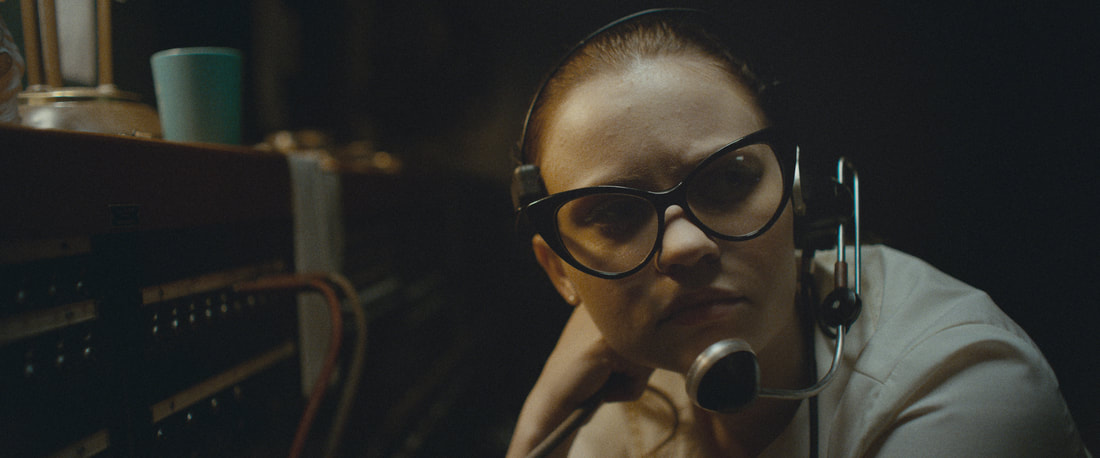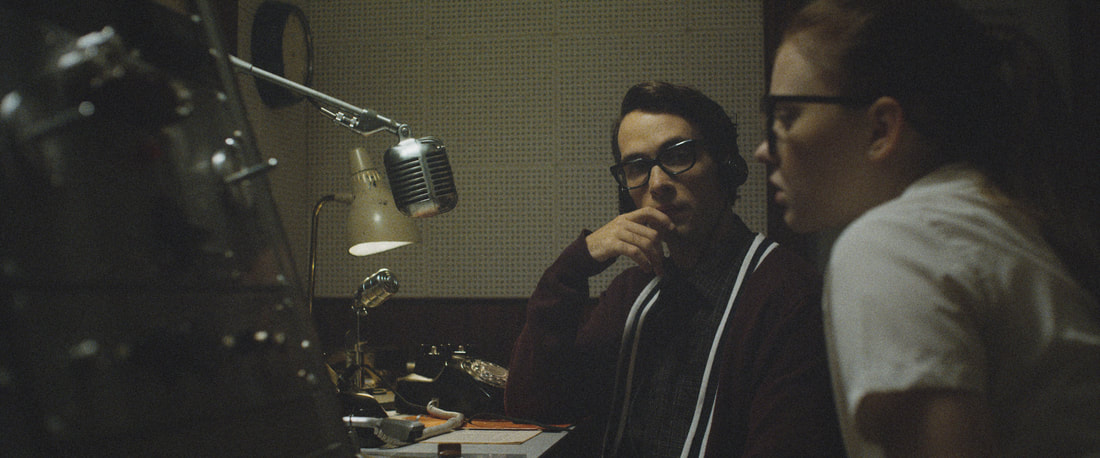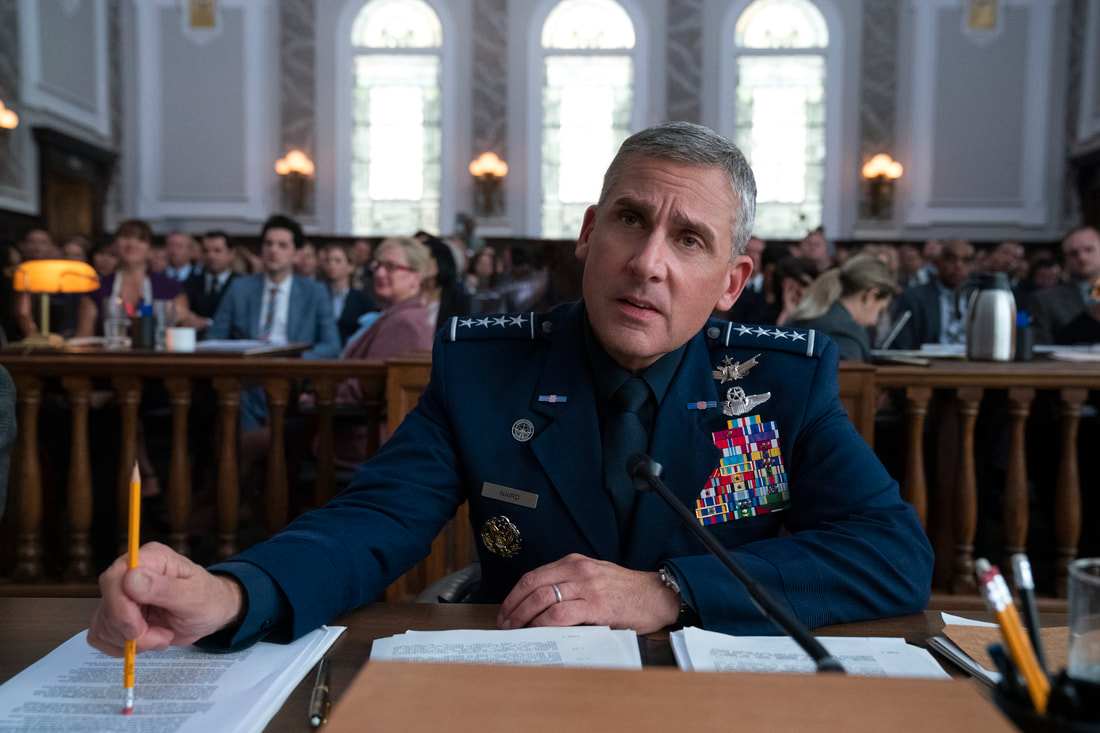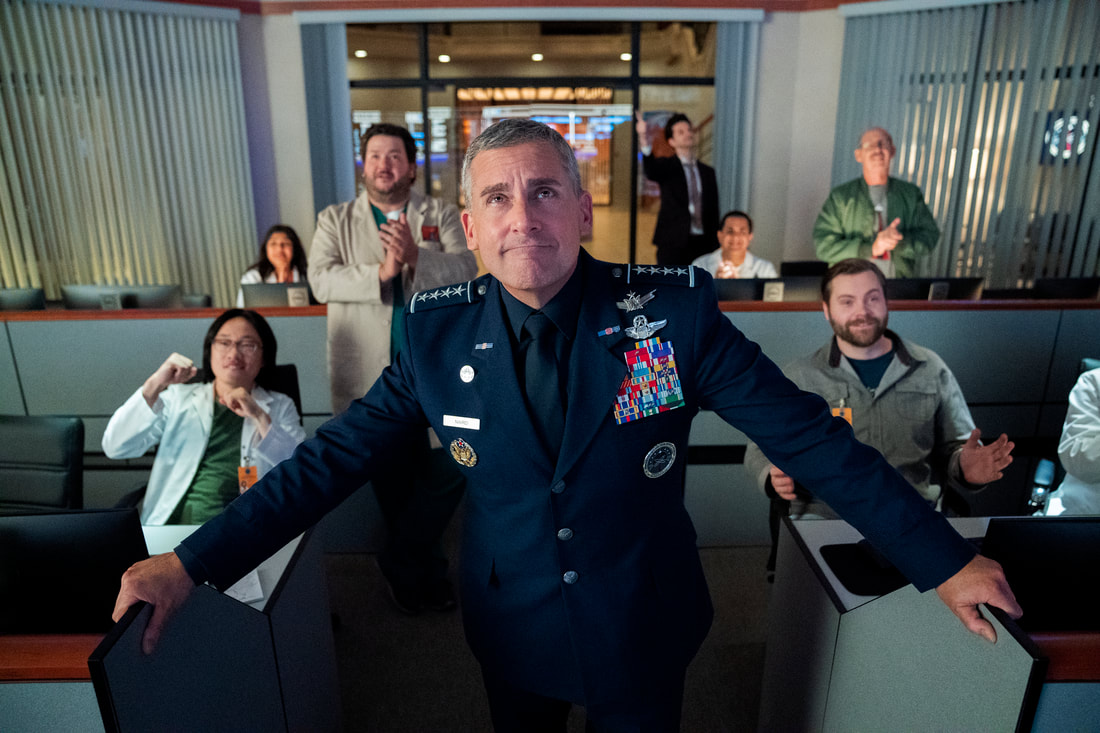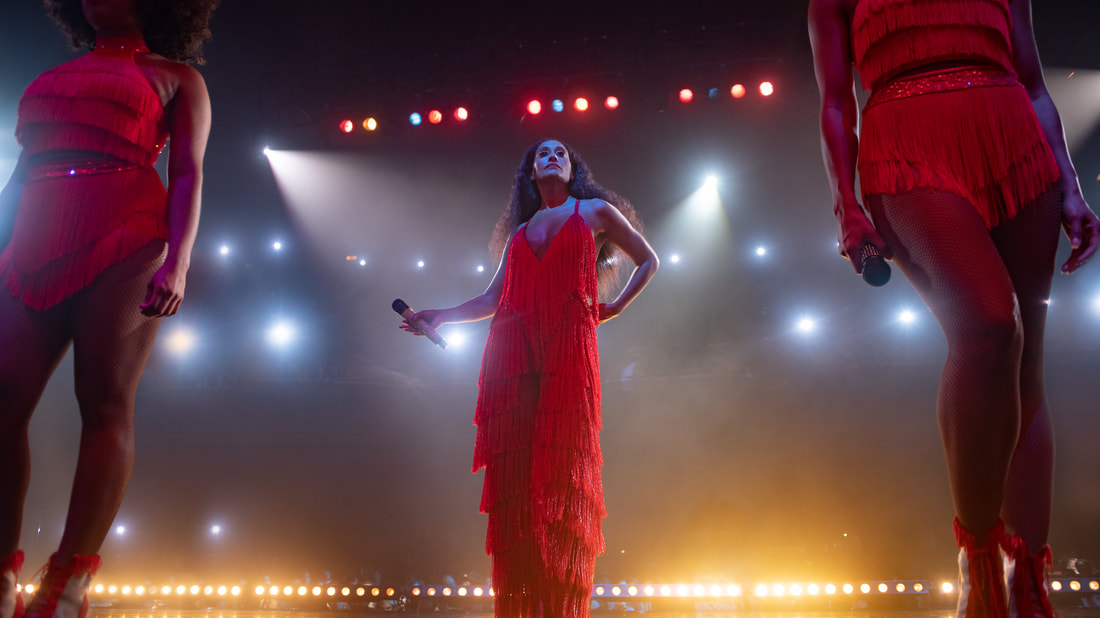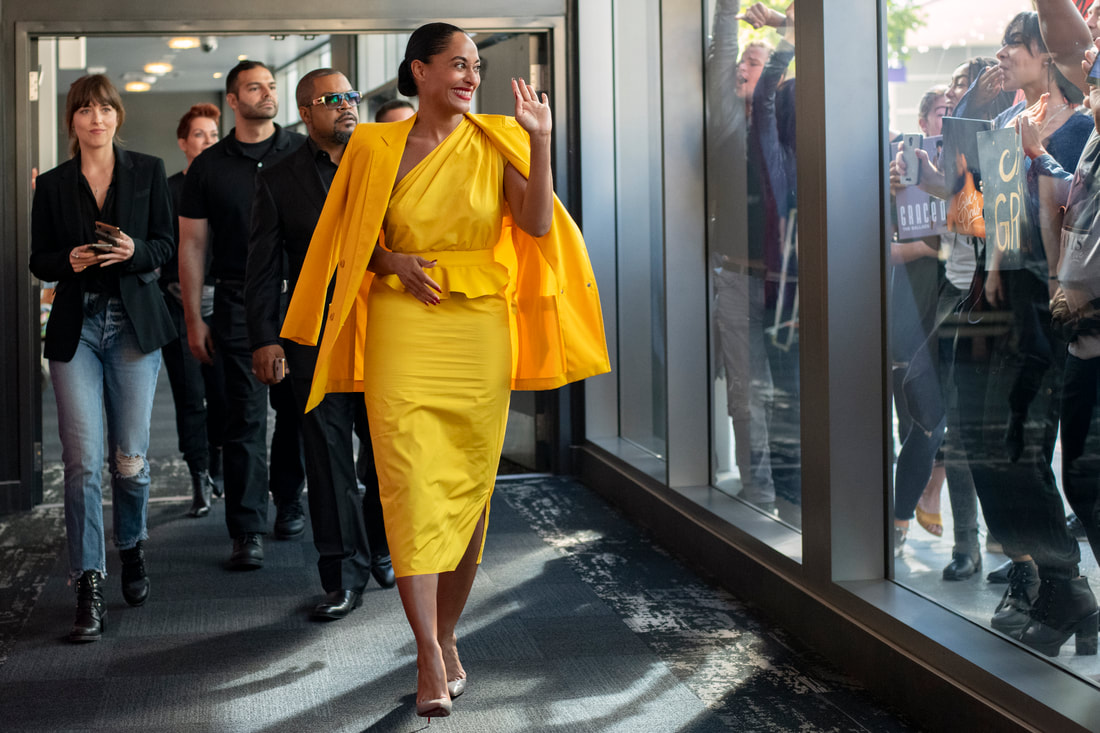|
Review by Camden Ferrell
Premiering at the 2019 International Documentary Film Festival Amsterdam, iHuman is the newest film from Norwegian director Tonje Hessen Schei. This film makes an ambitious attempt at consolidating a complex topic for viewers, and even if the results can be mixed at times, this is a timely, informative, and troubling documentary.
This film deals with the rise of artificial intelligence, how it is being used presently, and its future capabilities. It includes interviews from some of the leading experts in this field, and it features some examples of the current uses of AI. It’s a timely premise that needs to be explored thoroughly as we enter this unprecedented and uncertain age of technology in the years to come. The direction of this movie was generally solid from start to finish. It’s a fairly well-organized film in terms of its structure, and Hessen Schei has a knack for creating some interconnections between all of the film’s elements. The message and agenda of Hessen Schei is noble and significant, and the way the film was pieced together is able to convey these ideas effectively. The interviews themselves are hit or miss. Some of the interviews, like with the father of modern AI Jürgen Schmidhuber, are really interesting. However, there are some other interviewees that aren’t nearly as interesting and don’t add much to the film qualitatively. Luckily, the topic is far from tired, so all of the perspectives are at least directly concerned with a fascinating topic.
The main problem with this film is how broad its aim is. It tries to explore a sizeable chunk of the field of AI and modern technology, that it can feel intimidating. The film seems to bite off way more than it can chew in its runtime, and some sections feel superficial as a result. The topic is so interesting that the runtime could have well-exceeded two hours without losing its momentum or insight.
With what information it does present, it’s absolutely captivating and relevant. Even if its presentation isn’t as polished as it could have been, the themes and ideas discussed are important for this exact moment. There are a lot of great sections about current facial recognition technology and how this can be used against the public. Even though it’s a documentary, it’s a tense film that will make you feel uneasy. It begs the question of what governments and corporation are capable to do with this revolutionary technology. It makes us question our own safety and security in a world that is becoming increasingly digital. The film allows you to see that AI can either be the greatest invention ever or mankind’s final invention. There are some moments that feel hollow, and the exploration of its subjects are somewhat superficial, but iHuman is an undoubtedly relevant documentary. It’s worrying, but it’s supposed to be. There is much more the learn about AI after watching, but this film should be a decent starting point for viewers. iHuman is premiering as a part of the online edition of the 2020 Hot Docs Film Festival. Rating: 3.5/5
0 Comments
Review by Sean Boelman
Taking a look at one of the most important locations and eras in music history, Alsion Elwood’s two-part documentary Laurel Canyon is a must-watch for any fan of classic rock. An in-depth examination of the lives and music of some of the genre’s most iconic musicians, this info-packed documentary is a treat, even if it is a little overstuffed.
The series explores the music scene that formed in Laurel Canyon in Los Angeles which gave birth to a movement of innovative thinkers who changed the course of music for good. Although the documentary doesn’t offer a whole lot of new information that fans won’t already know, the new interviews that it features are sure to be intriguing for anyone who cares about these musicians’ work. Part of what stands out about Elwood’s documentary is that she is able to make it feel both comprehensive and personal. The series talks about nearly all of the major musicians and groups that came out of the Laurel Canyon scene, and as such, it will have something for everyone, even if just a small segment. The two sections, which clock in at a combined total of a little under three hours, feel very complete and do a good job of providing a survey of the topic’s history. While the feature documentary on the topic, Echo in the Canyon, is almost certainly the more entertaining of the two, this series offers the more in-depth interviews.
That said, there was also plenty enough information for Elwood to have made a longer miniseries on the topic. Granted, the brief runtime dedicated to each group allows the documentary to breeze by, but there’s obviously more to these stories than just humorous anecdotes. Fans could likely sit and watch their favorite musicians talk all day, and had the series been just a bit longer.
As one would expect, music plays a substantial role in the documentary, and Elwood does an amazing job of incorporating the soundtrack. All the favorite Laurel Canyon songs, and some that viewers might not expect, make an appearance, either in the form of performance/recording footage or to underscore the interviews. The greatest strength of Elwood’s documentary is without a doubt the interviews, which provide personal (and sometimes unfiltered) access to the stories of Laurel Canyon, but she nonetheless does a good job of incorporating archive footage into the series in an attempt to make it feel like a more immersive viewing experience. Laurel Canyon is an informative music history documentary, and while it could have spared to be longer, it’s still in-depth enough to be fascinating. Getting to see these musicians talk is worth the watch alone. Laurel Canyon airs on Epix in two parts on May 31 and June 7 at 10pm. Rating: 4.5/5
Review by Sean Boelman
Given recent events, Zeshawn Ali’s new documentary Two Gods deals with some themes that are absolutely very timely and important. Exploring how love and a sense community can conquer the challenges faced by a group of people, this is a very hard-hitting and emotional watch.
The film follows a Muslim casket maker in New Jersey who takes two troubled young men under his wing, teaching them about the ways of their religion and identity. Although the core of the movie explores a particular culture’s views about death and life, there is so much more here that can be seen as representative of greater society. Arguably the most effective moments of the film are those which explore the young men as they struggle to find a place in the world. On one hand, they face the expectations set forth to them by their family and religion, but find themselves increasingly drawn by a community that is not too conducive for their religious or personal growth. This is where the movie’s main subject comes in. A flawed person himself, Hanif serves as the best and most compassionate role model that the young men of this community have. Although they sometimes make bad choices (as all kids do at that age), Hanif is there to turn their mistakes into teachable moments that will help them become a more responsible person.
At times, the film does feel like it is pulling a bit too hard on the emotions, but for the most part, it feels brutally real and honest. The problems that the youth of this community are facing are rampant throughout the country, and unfortunately, not everyone has a guiding force like Hanif to help them learn.
One of the most respectable things about this movie is that it provides representation for a community that so often goes underseen in film. There are a lot of myths and prejudices held against the Muslim community, particularly in modern America, and this movie goes a long way in debunking some of those fallacies that the average viewer may hold. The film is also extremely impressive on a technical level. The movie is shot in gorgeous black-and-white cinematography that is among the most pristine of any documentary this year so far. Even though the things which the camera depicts are often harsh, there is a beauty to be found in the natural processes of life. Two Gods is a phenomenal debut from director Zeshawn Ali. Addressing the unknown with a message of compassion that people so desperately need to hear, this documentary stands out as one that demands to be seen. Two Gods is premiering as a part of the online edition of the 2020 Hot Docs Film Festival. Rating: 4.5/5
Review by Sean Boelman
Being re-released with an absolutely gorgeous restoration from the folks at Kino Lorber, The Grey Fox is an understated and thoughtful Western. A nuanced look at the psychology of crime, Phillip Borsos’s 1982 film doesn’t cover much new ground, but it does so in a way that is consistently interesting.
The movie tells the story of a stagecoach robber at the turn of the 20th century who, after recently being released from prison, decides to go to Canada to become a train robber. The film was released after the revisionist Western genre had already peaked, and yet it feels like an essential addition to the genre given its honest perspective. Much like Bonnie and Clyde and other movies that focus on a criminal as their protagonist, this film doesn’t glorify his actions, but rather, takes an ethically grey stance on the character. Unlike early Westerns, the robber characters aren’t pure evil, but rather, people who are drawn to a life of crime out of desperation or something else. What makes the gentleman robber here so interesting is that he treats crime almost as if it was a sport. He’s drawn to the thrill of crime because it keeps him from feeling his age. Having wasted away much of his life in prison, the character needs to feel something, and the only way he can do it is by breaking the rules. A lot can be gleaned about the way society treats released convicts through this story.
The late Richard Farnsworth gives an amazing performance in his lead role. When the movie was initially released, he received numerous accolades including a Golden Globe nomination, and it is completely understandable why. He brings an uncanny amount of humanity and empathy to a character that is insanely difficult to make sympathetic.
The pacing of the film will certainly defy the expectations of audiences who are used to the more action-oriented sensibilities of most American Westerns. This movie is more of a pleasant drama, rooted in the character’s emotional experiences rather than gunshots. There are some action sequences, but they cater more to the plot than anything else. Visually, the film is absolutely phenomenal. The cinematography is beautiful, taking advantage of the picturesque Canadian settings (some of which supposedly have not been otherwise seen in a motion picture). Of course, credit should also be given to the restorationists who did some amazing work as always giving the camera even more life than before. This restoration of The Grey Fox is a rare treat: a time capsule unearthed after years that still feels as wonderful now as it would have back then. For fans of Westerns, this is an absolute must-watch. The Grey Fox is now streaming in partnership with indie theaters. A list of participating locations can be found here. Rating: 4/5
Review by Sean Boelman
Filmmaker Judith Helfand’s new documentary Love & Stuff is an extremely intimate memoir dealing with some hard-hitting themes. And while its approach may not always be the most polished, Helfand does a very good job of making her story into something uplifting in an unexpected way.
The film follows Helfand as she begins to finalize the process of becoming an adoptive single mother at the age of fifty, all the while dealing with the lasting emotions from the recent loss of her own mother. It’s a clearly personal and specific story, but the universal emotions which it addresses are what makes this story resonate. Perhaps the most intriguing thing about the movie is the way in which Helfand draws comparisons between her experiences of joy and grief. Soon after facing one of the most difficult moments in her life, she is thrown into one of the most joyous, and yet her reflections on the relationship she had with her mother guide her in this new territory. The title of the film refers to the realizations that Helfand comes to as she sorts through her mother’s belongings in order to prepare her home for the arrival of a new family member. It’s interesting and inspiring to see how, despite the challenges she faces, Helfand finds room in her heart to love a child.
However, even more uplifting are the home videos that Helfand uses. While this is very much about the filmmaker’s experiences, it’s also a love letter to her mother. In telling her story and diving through these materials, she seems to have realized some of the quiet and unexpected ways in which her mother expressed her love to her.
That said, there is a subplot of the movie involving Helfand as she fulfills some of her mother’s last wishes, one of which was for her to lose weight. Although it is related to the matter at hand, Helfand’s other experiences are so much more interesting and compelling. This is about ten minutes of runtime that could have been cut. The execution of the film is also a bit uneven. Although Helfand’s blend of footage is relatively strong, the movie is largely dependent on a narration by Helfand to tell much of the story. It’s an easy narrative technique that reduces a lot of the emotional impact of the story. It still works, but not quite as well as it could have. Love & Stuff is a pretty solid documentary about the filmmaker’s own life. Apart from a few portions that don’t hit in the intended way, it’s a much more insightful and sympathetic watch than one would expect. Love & Stuff is premiering as a part of the online edition of the 2020 Hot Docs Film Festival. Rating: 3.5/5
Review by Sean Boelman
Buoyed by the tremendous chemistry between its two leads, End of Sentence is a new road movie with a ton of emotional heft. And even though the arc of the film is pretty generic and predictable, the beats never fail to have an impact because they are written in a highly effective manner.
The movie follows a recently widowed man and his just-released ex-convict son as they set out on a trip across Ireland to honor the last wish of his wife. At its core, there’s a really interesting story here about facing grief and recovery at the same time, but that is buried beneath a distractingly lighthearted road movie structure. A majority of the substance of the film comes in the first third, and that allows it to be the most interesting part of the story. After the narrative begins to find its footing and settles into its more conventional path, it loses a lot of its appeal. Eventually, it does take an unexpected turn, but it’s too little too late. The foundations for something really profound are there in the script, but they aren’t always fully explored. Perhaps the most intriguing part of the movie involves one of the characters trying to bring himself back into society while also dealing with the loss of his mother. Yet more often than not, this is brushed off in favor of the father-son dynamic.
Unfortunately, the father character is comparatively far less interesting than his son. The grief arc that he has is compelling, but does very little to stand out from the plethora of other stories about the same topic. Still, there’s enough here to pique the viewer’s interest and keep it for the entirety of the runtime.
John Hawkes (Three Billboards Outside Ebbing, Missouri) and Logan Lerman (The Perks of Being a Wallflower) have great chemistry together and are a big part of what makes the film move forward. Hawkes in particular is impressive, playing a character that is outside of his regular forte, bringing a lot of humanity to the role. On a technical level, the movie is pretty well-made. For a road movie, there’s not a lot of emphasis placed on the setting. That said, when the cinematography does take a look at the backgrounds of the shots, it’s pretty gorgeous. The score of the film is also quite good, accompanying the tone of the movie well. End of Sentence isn’t anything extraordinary in a narrative sense, but it’s a very solid entry into the genre. It’s definitely worth watching, if only for the great performances by John Hawkes and Logan Lerman. End of Sentence hits VOD on May 29. Rating: 3/5
Review by Sean Boelman
Abby Ainsworth’s new documentary Stage: The Culinary Internship provides an in-depth dive into the world of professional chefs. And while it doesn’t recognize all of its strengths, the film documents some really fascinating processes that haven’t been seen quite like this.
The movie follows a group of aspiring chefs who embark on a nine-month internship at one of the most acclaimed and exclusive restaurants in the world. This story is definitely very different from that of a majority of cooking docs, many of which follow chefs that are already established with restaurants of their own. Perhaps the most interesting part of the film is when it follows the chefs and apprentices as they formulate the restaurant’s menu of experimental dishes that defy the cooking conventions. It’s interesting to see how these chefs, both experienced and novice, show their ingenuity through the unique food they prepare. Of course, the movie features plenty of gorgeous shots of this food being prepared and served. Unlike a lot of other food documentaries that are reliant on the viewer finding the food appetizing, much of the appeal here comes from the curiosity viewers will feel about the obscurity of the cuisine.
The editing and cinematography both do a very good job of making the viewer feel as if they are in the moment. It’s easy to get wrapped up in the story and feel like one is actually in this kitchen where creativity flows freely. This is largely a new sensation when it comes to the genre, and it works quite well.
That said, the portions of the film that explore the chef’s individual experiences aren’t as compelling. At just an hour and eighteen minutes in length, the movie isn’t really able to go into as much depth with each of the apprentices as one would like. Perhaps a longer, serialized format would have been more conducive to this story as a result. Regardless, audiences will undeniably respect these chefs for their passion and dedication to their craft. The beginning of the film introduces some of the apprentices and allows them to talk about why they chose to participate in the stage. Although it would have been nice to spend more time with them, their stories are still inspirational as presented. Stage: The Culinary Internship is a must-watch for any cooking enthusiast. It’s a quick and satisfying watch with a perspective that is massively different from what you have seen before. Stage: The Culinary Internship screens in partnership with indie theaters beginning May 29. A list of participating locations can be found here. Rating: 3.5/5
Review by Sean Boelman
Clearly owing a lot of its style to the classic television show The Twilight Zone, Andrew Patterson’s retro sci-fi thriller The Vast of Night is definitely a lot of fun. And even though the film does suffer from some common first-time director mistakes, it uses its lean but ambitious script to its fullest extent.
The movie follows a young telephone operator and radio DJ in rural small-town New Mexico during the 1950s as they discover a mysterious transmission and attempt to investigate its origins. In terms of sci-fi premises, it isn’t anything particularly fresh or new, but the script by James Montague and Craig W. Sanger goes about it in an interesting way. Much but not all of the film takes the form of long takes. It isn’t unusual for the movie to spend five minutes lingering on a character as she operates a switchboard or another as he talks on the phone with a source (only heard by voice). At a mere eighty-nine minutes long, there’s hardly any time to be wasted here, and every minute really does count. Perhaps the biggest strength of Montague and Sanger’s script is its dialogue. The pacing of the dialogue is very unorthodox, but it consistently pays off. Towards the beginning of the film, they are firing dialogue back-and-forth rapidly, but in other scenes, someone is giving a protracted monologue, lingering on every single word.
The acting in the movie is also very strong. The chemistry between the film’s two stars, Sierra McCormick and Jake Horowitz, is a big part of what makes the movie move forward. McCormick in particular is extremely impressive, bringing a lot of humanity and humility to the character. Bruce Davis also gives a memorable turn in his voice role.
One of the more frustrating things about the film is its framing device. The movie presents itself as an entry into a fictional television show called “Paradox Theatre” with an introduction that’s a direct (and excessive) homage to the Twilight Zone, but it isn’t fully developed. If nothing else, maybe this will inspire a series of “Paradox Theatre” films, but it doesn’t work in this exact case. On a technical level, there are some really gorgeous and exciting things happening here, although a few of the movie’s ambitious swings end up feeling more like misses. For example, there are a couple sequences that cut completely to black, and while the audio is effective, the absence of the image adds nothing to it. The Vast of Night doesn’t have the most original of narratives, but it works pretty well regardless. Fans of science fiction, especially old-school genre flicks, will absolutely want to check this out. The Vast of Night streams on Amazon Prime beginning May 29. Rating: 3.5/5
Review by Sean Boelman
Coming from the minds of Greg Daniels and Steve Carell (The Office), Netflix’s newest original series Space Force is inarguably one of the most ambitious situational comedies in the history of the genre, but it doesn’t always pay off. At its best when it leans into the comedic talents of its cast and writers, the series ultimately goes too big in many instances and can fall flat as a result.
The series follows the four-star general in charge of the new branch of the United States Armed Forces as he and his spacemen face the struggles of trying to exert dominance over the final frontier. For the most part, it’s a political farce making fun of the mundanities of even something as unprecedented as this. Carell is just playing an angrier and more straight-faced version of his Michael Scott character here: a well-meaning but socially inept boss who has the knowledge for the job but doesn’t know how to express it. Although this may be a positive for those who are hardcore devotees to The Office, it keeps the series from shining as brightly as it could. Ultimately, the real star of Space Force is not Carell, but John Malkovich. Playing the protagonist’s lead scientific civilian advisor, Malkovich has many of the funniest moments in the series, offering witty quips from an outsider’s perspective. His chemistry with Carell is also a significant driving force for the narrative.
That said, not all of the subplots work well. One of the best things about The Office is that everyone has their favorite character, and these favorites span the entire cast. Here, the favorites will almost entirely be between those two leads. Some of the other characters, like another prominent scientist (Jimmy O. Yang) and the astronauts’ captain (Tawny Newsome) are compelling but need to be explored more in future seasons; others, such as the protagonist’s wife (Lisa Kudrow) are non-starters.
It does become frustrating when the series attempts to take direct stabs at real-world politics. Daniels and Carell do a good enough job of showing the buffoonery within their characters, so when they insert members of Congress that are meant to represent real-life politicians and a social media manager that is clearly meant to make fun of the President’s tweets, it draws the viewer out of the series’ alternate world. Regardless, there was a lot of money invested into making this world as immersive as possible, and with the exception of those moments that are based a bit too heavily in reality, it works well. The production values here are significantly stronger than most comedy series. This allows the more action-oriented sequences to function even though they often detract from the humor. Space Force certainly isn’t going to be the next The Office — it simply isn’t silly or funny enough — but in its own right, it’s a solid watch. It will be interesting to see where Daniels and Carell take this in the future as the real Space Force begins to manifest itself and becomes less open to speculation. Space Force streams on Netflix beginning May 29. (All ten episodes reviewed.) Rating: 4/5
Review by Sean Boelman
Foregoing a theatrical release in favor of releasing direct to viewers’ homes while theaters remain closed, the new music industry romantic drama The High Note is a bit off-pitch. That said, great performances and a charming (if generic) script allow the film to be mostly diverting and saccharine entertainment.
The movie follows the personal assistant of a once world-famous diva singer trying to make a comeback as she deals with her own aspirations in the industry. The film plays out as a pretty by-the-book rags-to-riches tale, and that’s admittedly pretty disappointing given the amount of potential in the script (this was previously included on the Black List). Perhaps the fatal flaw in the movie is that it chooses the wrong character to be the protagonist. Although the personal assistant (Dakota Johnson) is perhaps the more approachable of the characters, her boss, the superstar trying to hold onto the spotlight (Tracee Ellis Ross), is far more interesting. Unfortunately, the latter’s arc is relegated to a B-story. There’s also an additional subplot involving the protagonist discovering a talented singer and trying to produce his music as a backdoor into the industry. Even though it ultimately ties into the main arcs quite well, it takes a long time to get there and it’s clearly the most underdeveloped and unsatisfying part of the film.
Without a doubt, the best thing that the movie has going for it is its cast. Ross is phenomenal in her key supporting role, giving a performance that will likely have her in Golden Globes talks come the end of the year. She absolutely nails the charming but forceful qualities of the diva personality. Ice Cube, Bill Pullman, Eddie Izzard, and Kelvin Harrison Jr. are also all great, but aren’t fully utilized.
The soundtrack of the film itself is great, but the way in which it is incorporated isn’t always the best. There’s one song (“Bad Girl”) that is heard about five different times over the course of the movie in three different ways. And with the rest of the tracks the filmmaker’s had at their disposal — including the excellent “Love Myself” (The High Note) — it’s a shame that they fell back on that one. Stylistically, the film is bright and full of glitz and glamor, exactly what one would expect of a movie like this. Director Nisha Ganatra brings a competent but unspectacular style to the movie that doesn’t do it any favors. Thankfully, the strong performances make the film stand out loudly among the crowd. The High Note isn’t amazing, but it’s entirely harmless and mostly satisfying. While there’s a truly great movie in here somewhere, audiences are left with an agreeable and ordinary drama elevated by its stars. The High Note hits VOD on May 29. Rating: 3/5 |
Archives
April 2024
Authors
All
|
|
|
disappointment media
Dedicated to unique and diverse perspectives on cinema! |





